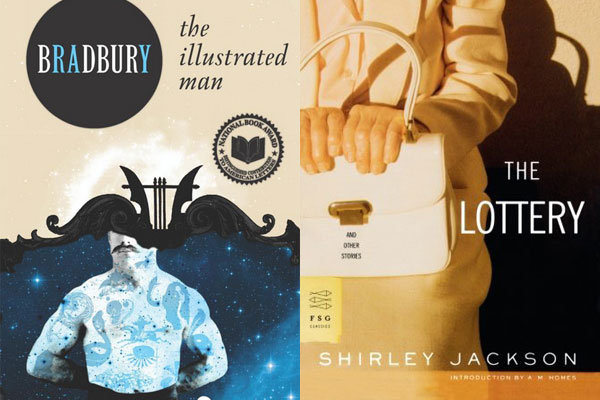When we selected Lynn Coady’s Giller Prize-winning short story collection Hellgoing as our latest Cityline Book Club pick, it prompted us to think about other short stories and collections that have made an impression on us over the years.
There’s something infinitely appealing about reading a short story – the plots are meaty, the prose is efficient, and of course there’s the instant gratification of being to burn through one (or several) in an evening. Here are a few of our favourite classic tales, some of which you might recognize from your junior or high school curriculum. Whether or not you’ve read them before, we highly recommend picking them up (again) and sinking your teeth into some of the best short fiction ever written.
The Lottery, by Shirley Jackson: Jackson’s classic tale of conformity is dark, disturbing, and brilliant. First published in 1948 in The New Yorker, the story was initially met with anger from readers, some of which sent hate mail and cancelled their subscriptions. Now, it’s considered one of the most famous short stories ever written – it’s taught in schools across North America.
The Tell-Tale Heart, by Edgar Allen Poe: While it’s difficult to name just one of Poe’s stories, the one that sticks with us the most is this Gothic tale of murder, and the guilty narrator trying to convince the reader of his sanity. Poe’s story first appeared in literary magazine The Pioneer in 1843.
The Legend of Sleepy Hollow, by Washington Irving: This and Irving’s other famous story, Rip Van Winkle, were contained in a collection of stories and essays called, The Sketch Book of Geoffrey Crayon, Gent., published in 1820. We first learned about this story in cartoon form – who could forget Bing Crosby’s chilling narration of the Disney animated short? – but Irving’s prose is atmospheric and unforgettable.
A Vendetta, by Guy de Maupassant : Guy de Maupassant wrote about 300 short stories in his career, and is considered one of the masters of the form. A Vendetta, only about 2,000 words in length, is a macabre story of revenge exacted by the mother of a slain man upon his killer.
The Veldt (from the collection, The Illustrated Man), by Ray Bradbury: In a futuristic society, a family lives in an automated home that does everything for them. When the 3D nursery becomes stuck in a tableau of an African veldt, complete with lions grazing on their dinner, a psychiatrist suggests the parents ‘turn off’ the home and become more self-sufficient. The children take issue with that, not wanting to lose their beloved nursery. We won’t spoil the ending for you in case you haven’t read it, but we guarantee it’s unforgettable. If you enjoy this, consider reading the sci-fi master’s other, longer works, including Fahrenheit 451 and Something Wicked This Way Comes.
The Devil and Daniel Webster, by Stephen Vincent Benet: In this retelling of the Faust story, Daniel Webster is a lawyer defending a farmer against the Devil, who claims that the farmer sold him his soul in exchange for seven years of prosperity. While the story is fictional, the character of Daniel Webster was based on the real-life Civil War era U.S. senator, known for his public speaking skills.
We want to know what your favourite short story is! Share your picks in the comments below.

